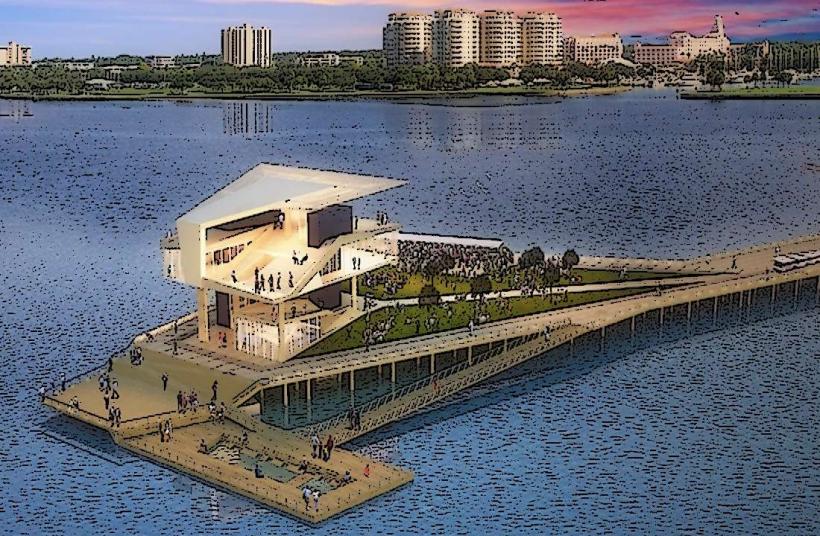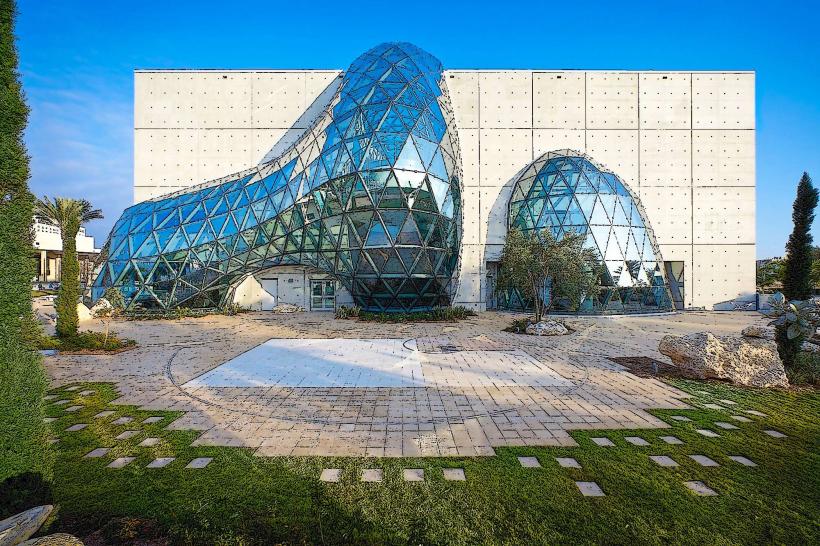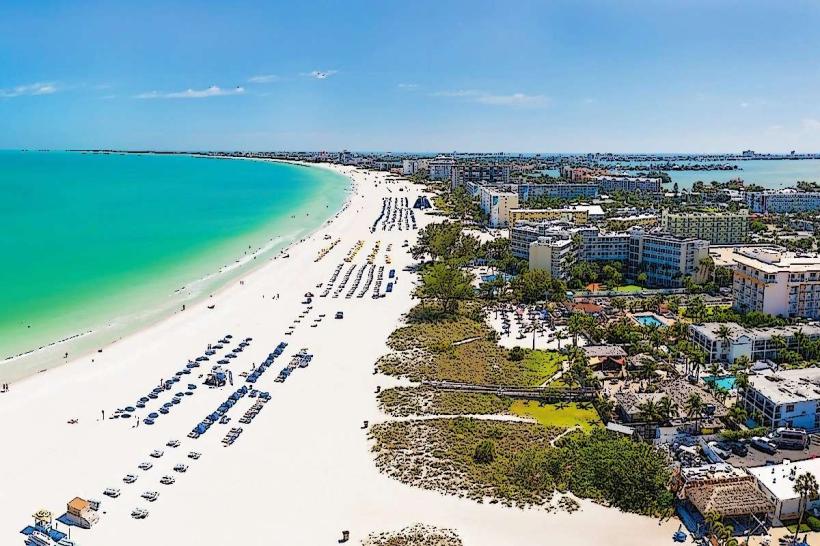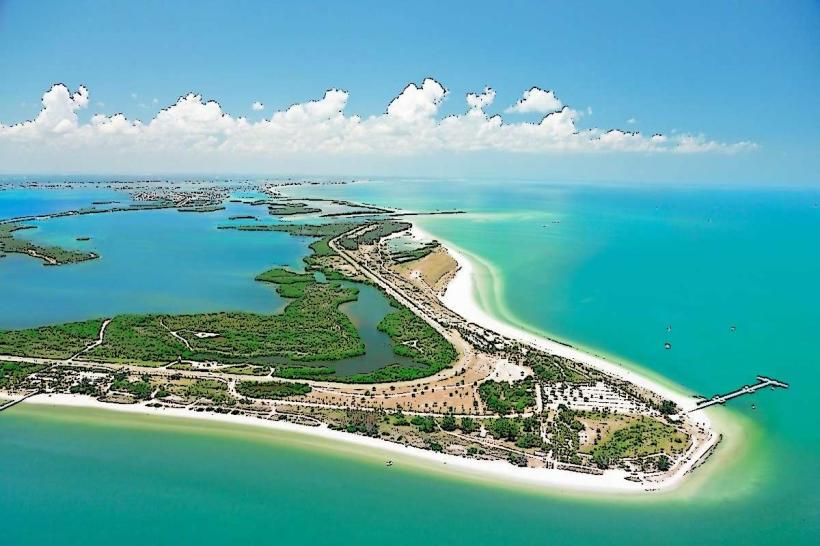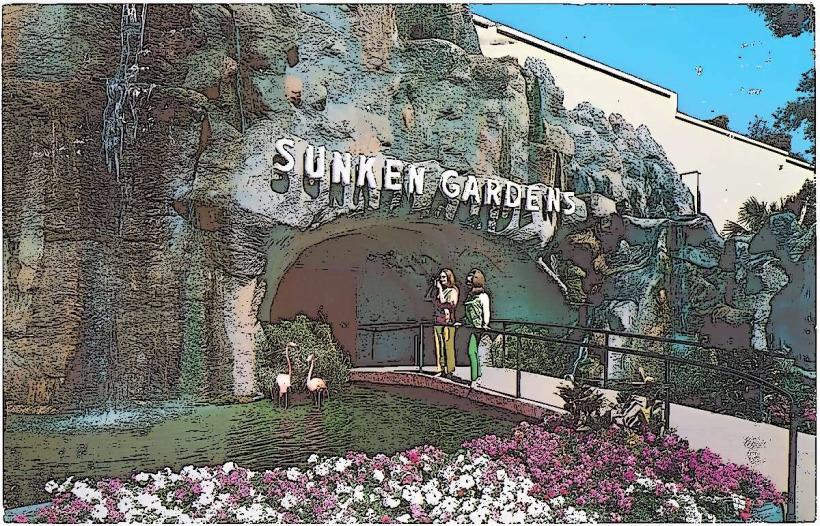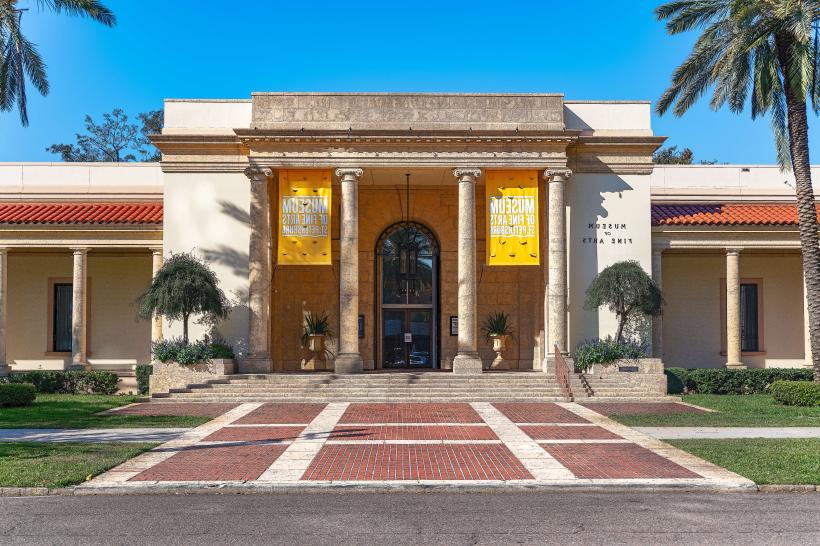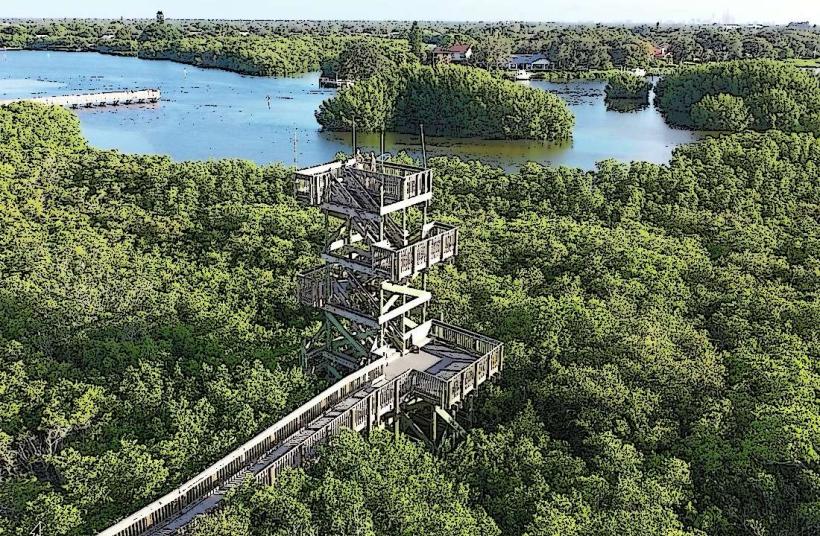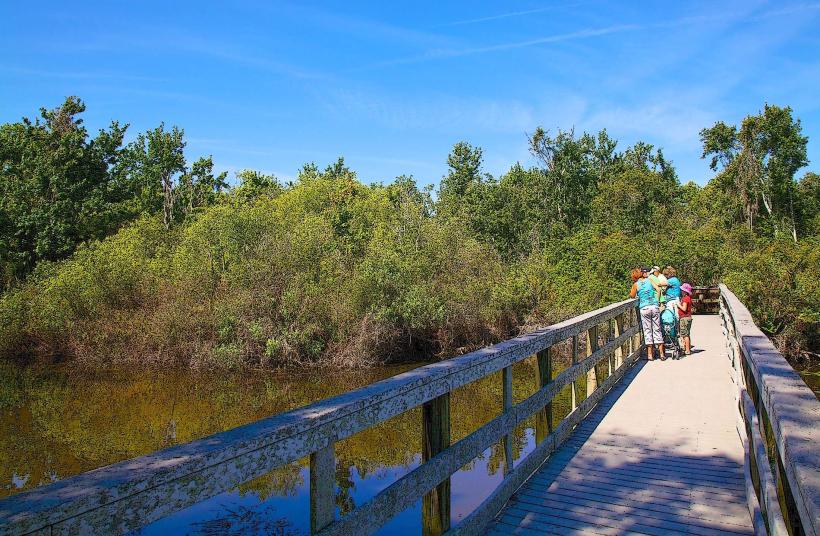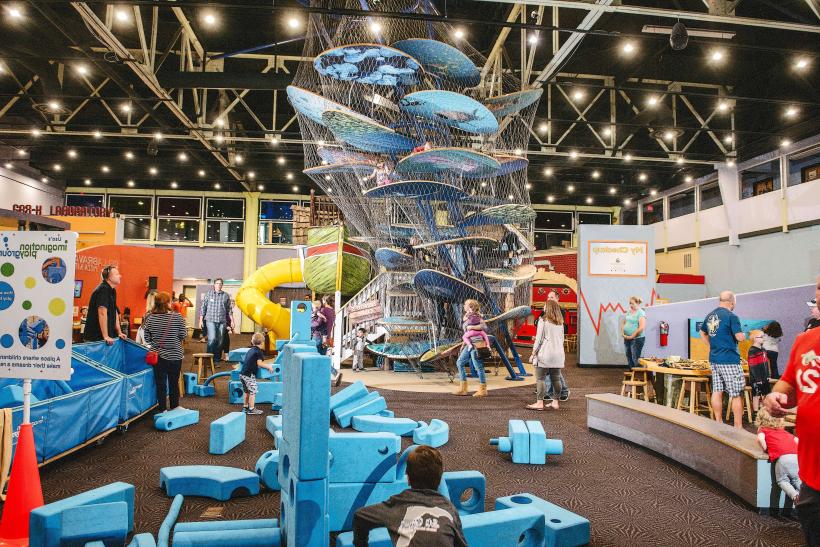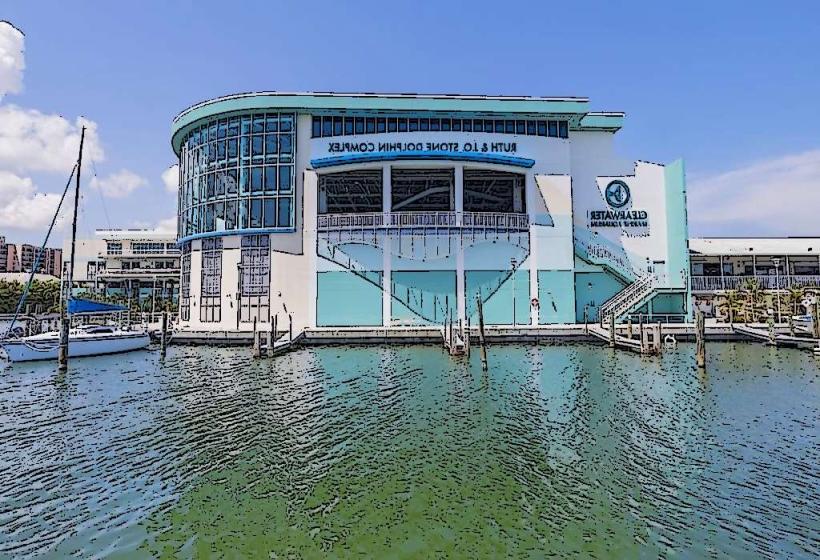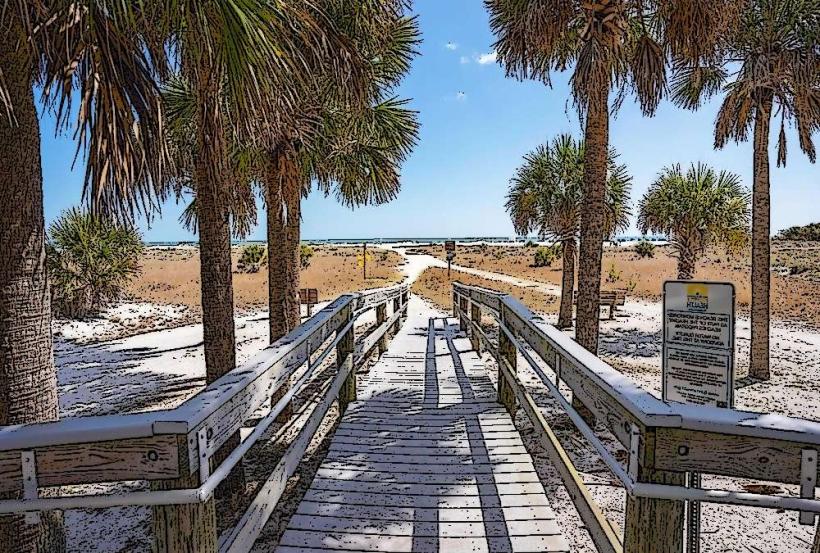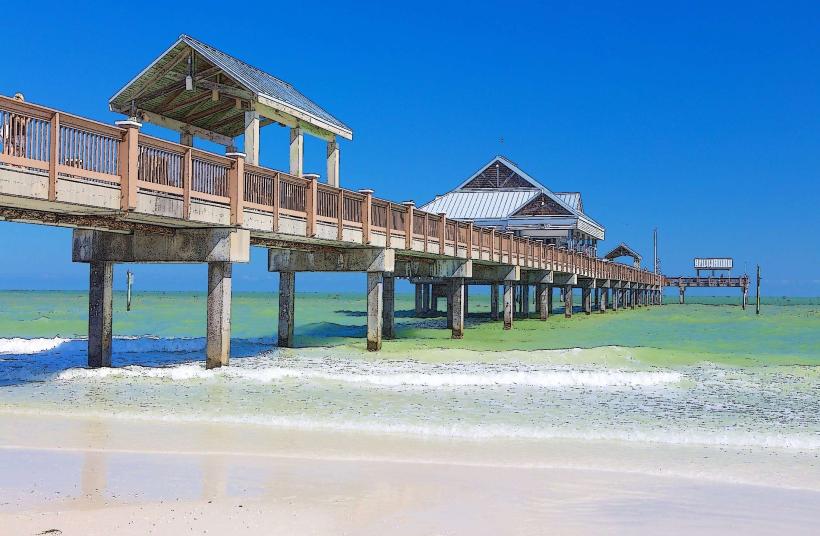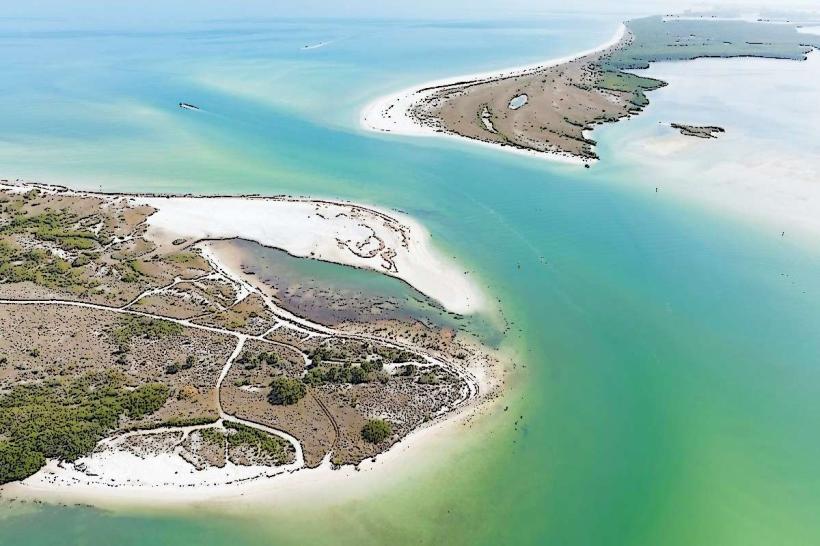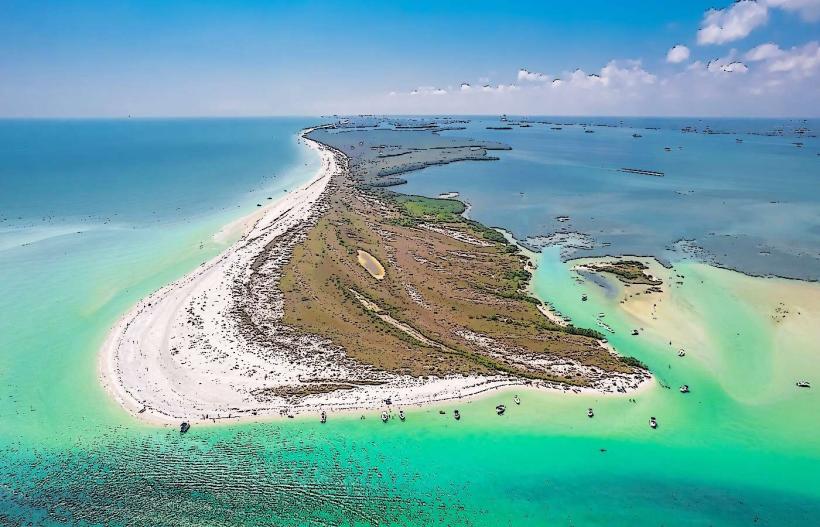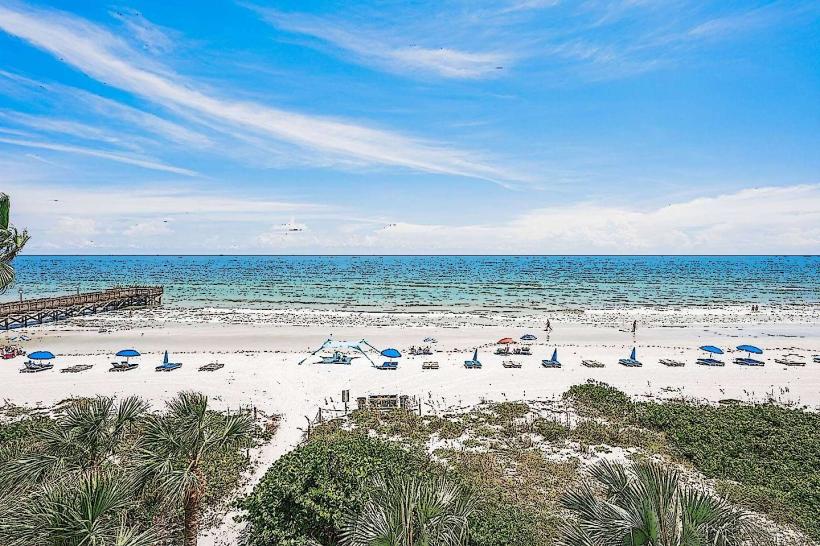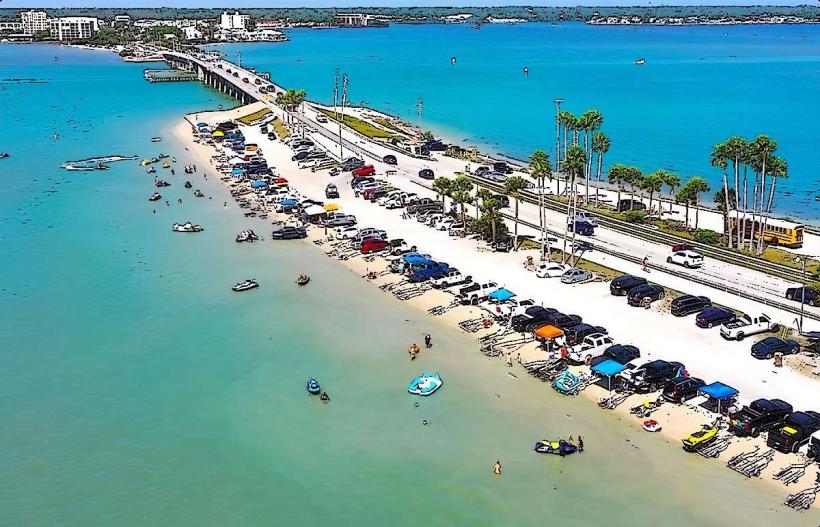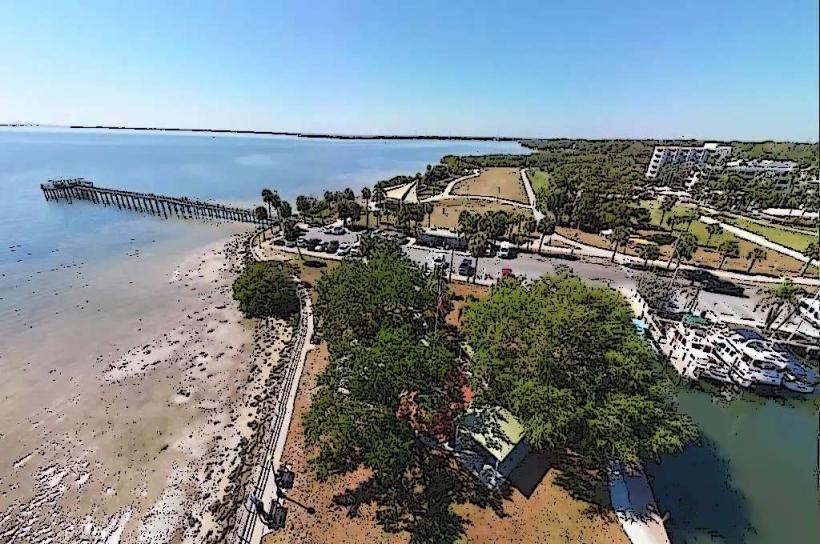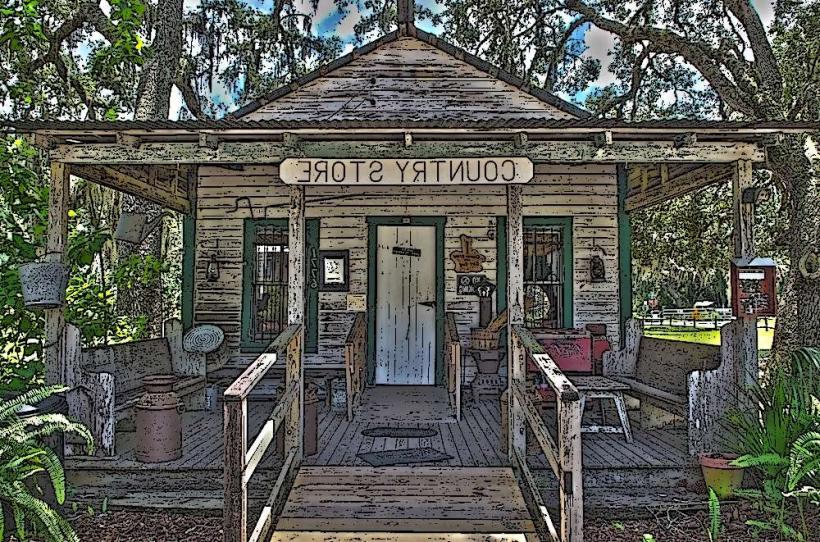Information
Landmark: Tropicana FieldCity: St Petersburg
Country: USA Florida
Continent: North America
Tropicana Field, St Petersburg, USA Florida, North America
Tropicana Field, often nicknamed "The Trop," is a multi-purpose domed stadium in St. Petersburg, Florida. Since its completion in 1990, it has served as the primary home of the Tampa Bay Rays, the area’s Major League Baseball (MLB) team. The stadium is distinctive for its fully enclosed, fixed-dome roof-rare among MLB stadiums-and for its place in the broader sports and civic life of the Tampa Bay area.
1. Historical Background
Conception and Construction: The idea for Tropicana Field arose in the 1980s, as St. Petersburg aimed to attract a professional baseball team. Groundbreaking occurred in 1986, and the stadium was completed in 1990 under the name Florida Suncoast Dome.
Naming and Early Use: Originally intended to lure an MLB team, the stadium temporarily hosted hockey (Tampa Bay Lightning), arena football, and basketball events. It was renamed the ThunderDome in 1993 during its time with the Lightning.
Tropicana Branding: In 1996, after a sponsorship deal with Tropicana Products, the facility became Tropicana Field. It officially became home to the Tampa Bay Devil Rays (now Rays) when the MLB awarded St. Petersburg an expansion team in 1998.
2. Architectural and Structural Features
Dome and Roof Design:
The dome is fixed and made of a white translucent Teflon-coated fiberglass fabric stretched over a cable-supported structure.
Unlike retractable-roof stadiums, the fixed roof was intended to avoid Florida's rain and intense sun. However, it has been criticized for its low-hanging catwalks, which sometimes interfere with batted balls during play.
The roof is tilted at a 6.5-degree angle to help reduce glare from the sun and enhance interior visibility.
Seating and Interior:
Initially built to hold over 45,000, the seating has been reduced over the years to around 25,000 to better match attendance and improve fan experience.
Seating areas are color-coded and feature typical amenities like luxury suites, party decks, and accessible seating.
Playing Surface:
Originally Astroturf, then replaced with FieldTurf, and currently Shaw Sports Turf, designed to provide better traction and aesthetics.
3. Unique and Notable Features
The Rays Touch Tank:
A fan-favorite feature located beyond the centerfield wall.
A 10,000-gallon tank houses real cownose rays, allowing fans to touch and feed them (under supervision), blending marine education with baseball entertainment.
Ted Williams Museum and Hitters Hall of Fame:
Relocated from Hernando, Florida, and installed inside Tropicana Field.
Honors Ted Williams and legendary hitters such as Joe DiMaggio, Mickey Mantle, and Willie Mays.
Includes memorabilia, photos, and video displays celebrating baseball’s rich history.
Catwalks and Ground Rules:
Tropicana Field has four concentric catwalks (A-D), part of the dome’s structural framework. Balls hit off the different rings are ruled in or out of play depending on which ring is struck-this has led to some unusual plays and is part of the stadium’s quirky character.
4. Major Events Hosted
Tampa Bay Rays MLB Games (1998–present): The primary use of the facility.
2008 World Series: Hosted games during the Rays’ first World Series appearance.
1999 NCAA Men's Basketball Final Four.
NHL and Arena Football games in the 1990s.
Concerts, religious events, and trade shows.
WWE and boxing events have also been held at various times.
5. 2024 Hurricane Damage and 2025 Status
In October 2024, Hurricane Milton, a Category 3 storm, caused extensive structural damage to Tropicana Field:
A major section of the roof was torn off.
Interior sections were flooded and damaged, including concession areas and suites.
Estimated repair costs are around $39 million, with $23.6 million required just to fix the roof.
As a result:
The Tampa Bay Rays announced they would not play at Tropicana Field in 2025.
Their temporary home field will be George M. Steinbrenner Field in Tampa.
The planned $1.3 billion stadium development in downtown St. Petersburg was canceled in March 2025 due to delays, inflation, and the hurricane’s impact.
This has raised questions about the franchise's long-term future in the region, as ownership re-evaluates options.
6. Location and Accessibility
Address: One Tropicana Drive, St. Petersburg, FL 33705
Location: Just west of downtown, near I-275, offering central access to Tampa Bay.
Transportation:
Accessible by car, rideshare, and bus.
Surrounding area offers multiple parking lots.
Pedestrian-friendly areas around the dome link to nearby restaurants and bars, especially along Central Avenue.
7. Public Perception and Future Prospects
Criticism:
Tropicana Field has long been criticized for being outdated, dark, and lacking the atmosphere of modern ballparks.
The roof’s catwalks are considered a design flaw by many fans and players.
Attendance has frequently been among the lowest in the league, despite team success.
Redevelopment Hopes:
Prior to the hurricane, plans were in motion to demolish the stadium and redevelop the 86-acre site as part of a larger urban revitalization project.
Those plans are now uncertain, though St. Petersburg leaders are exploring alternatives to keep the Rays in the area or repurpose the site for mixed-use development.
Summary
Tropicana Field is a unique and historically important structure in Florida’s sports landscape. Its domed design, interactive features like the Rays Tank, and integration of baseball history with the Ted Williams Museum make it a memorable place, despite its structural quirks and aging facilities. After major hurricane damage in 2024 and a canceled stadium deal, its future is uncertain-but it remains a symbol of both ambition and adaptation in the Tampa Bay sports scene.

